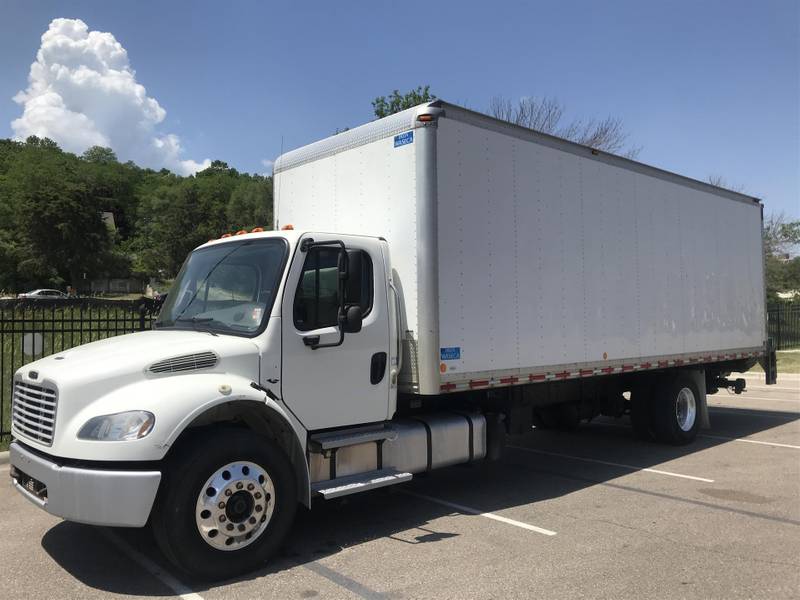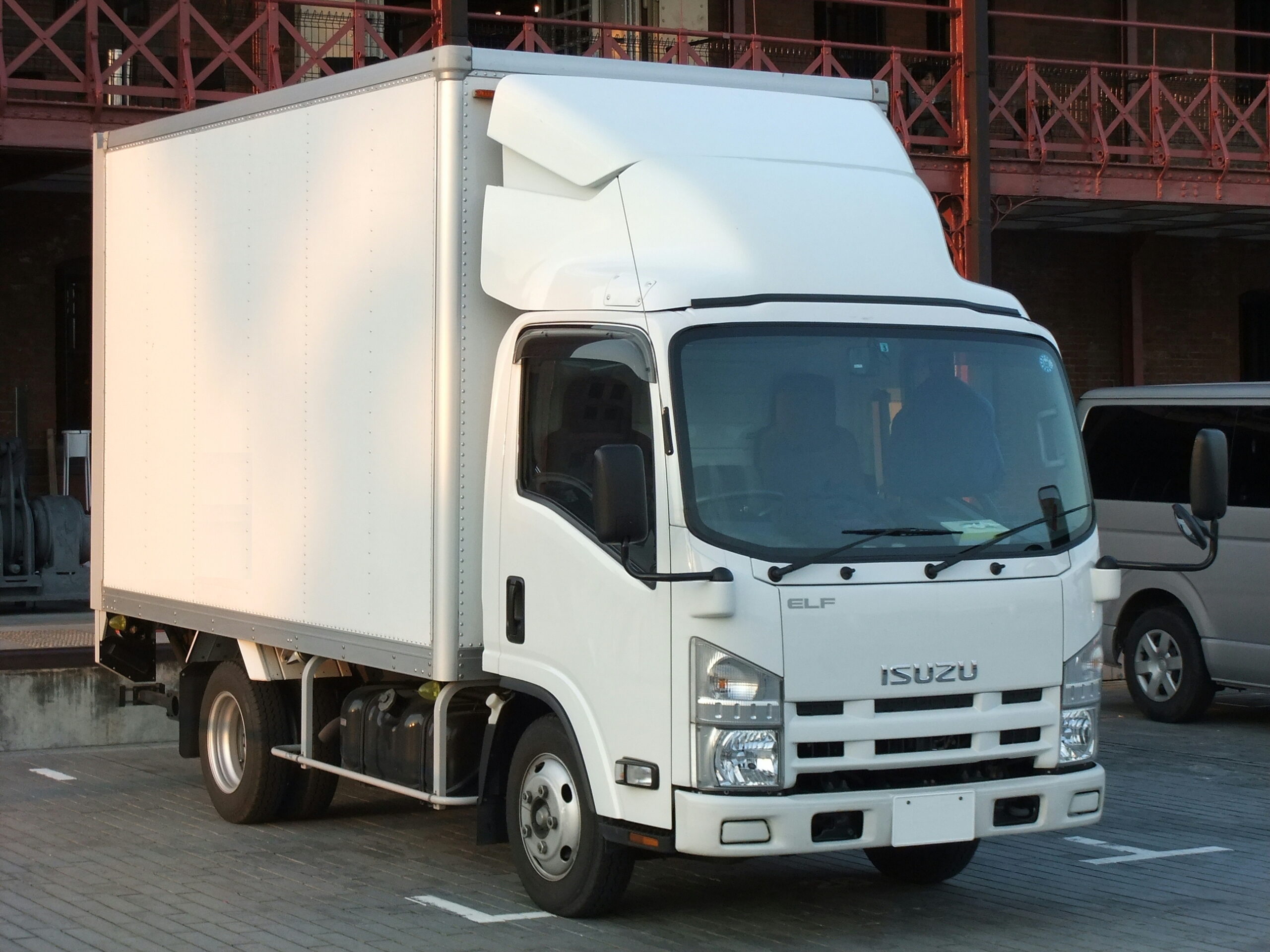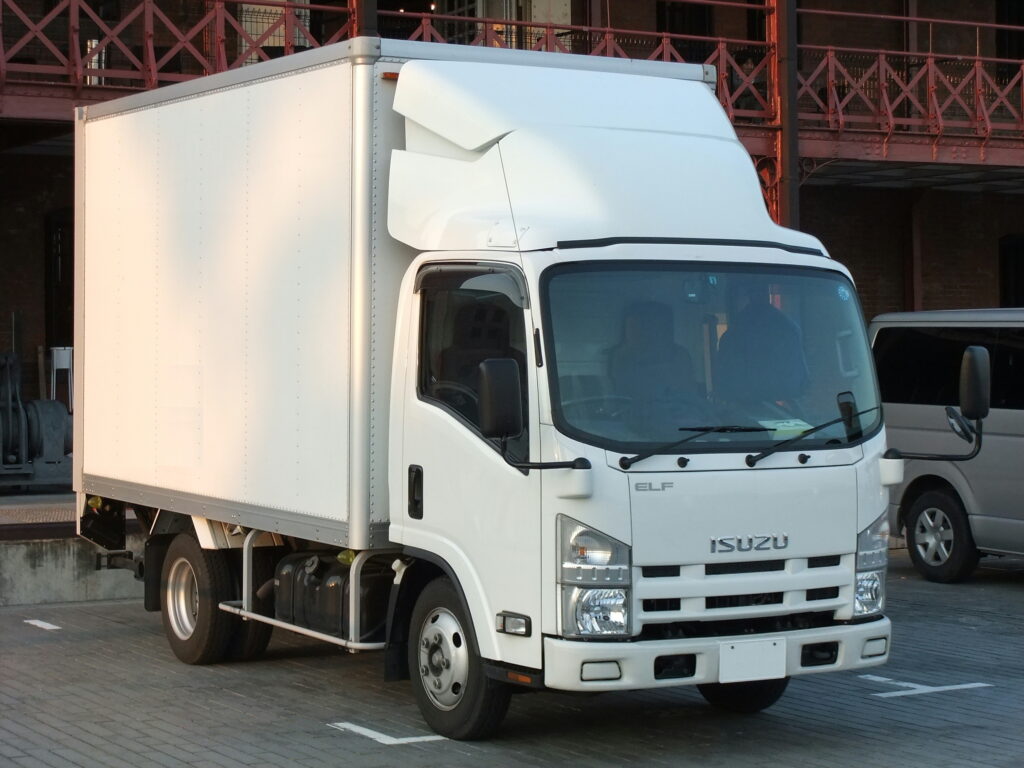Table of Contents
- 1
- 2 Firstly, What is a Box Truck Exactly?
- 3 Understanding the Box Truck Business
- 4 Why Start a Box Truck Business?
- 5 Box Truck Business Ideas
- 6 Steps to Start a Box Truck Business
- 6.1 1. Create a Business Plan
- 6.2 2. Register Your Business
- 6.3 3. Obtain Necessary Permits and Licenses
- 6.4 4. Purchase or Lease a Box Truck
- 6.5 5. Get Insured
- 6.6 6. Hire Drivers
- 6.7 7. Market Your Business
- 6.8 8. Manage Your Finances
- 6.9 9. Provide Excellent Customer Service
- 6.10 10. Continue to Grow and Expand Your Business
- 7 Box Truck Delivery Business Challenges
- 8 The Box Truck Business and the Future
- 9 Here are some other additional commonly asked questions people ask about the box truck business:
- 9.1 How do I find loads for box trucks?
- 9.2 How much does a box truck cost?
- 9.3 How do I start a local trucking business?
- 9.4 How much weight can a 26ft box truck carry?
- 9.5 How do I get loads directly from shippers?
- 9.6 How do I find small freight loads?
- 9.7 What is the best load board for box trucks?
- 9.8 How do freight brokers find loads?
- 9.9 What is gross vehicle weight rating?
Firstly, What is a Box Truck Exactly?
A box truck, also known as a cube truck, cube van, or box van, is a vehicle that is characterized by its cubical cargo area. The ‘box’ or ‘cube’ is typically a separate unit attached to a cab, and it’s this design that provides the box truck industry it’s descriptive name. The box is generally constructed from durable materials like aluminum or fiberglass to protect the cargo within.
Box trucks are widely used for a variety of commercial purposes. They are most commonly used for transporting goods and deliveries, especially by retail businesses and couriers.
From furniture to appliances, and from parcel delivery to freight transport, box trucks are a versatile solution for a wide range of cargo needs.
An essential trait that sets box trucks apart is the accessibility to the cargo space. Typically, they have a rear door that rolls up like a garage door, and some models offer a side door. The cargo space can be easily accessed and organized due to its shape, making it ideal for businesses that require frequent loading and unloading of goods.
While some box trucks are barebones, others come equipped with features such as lift gates, which can aid in the loading of heavy items, or refrigeration units for perishable goods. This adaptability makes the box truck an invaluable tool in various industries.
The appeal of having a box truck business is the opportunity it presents for simplifying your business operations and becoming your own boss. This article will guide you through the process of starting a successful box truck business yourself, with insights and tips to ensure you hit the road running.
Understanding the Box Truck Business
A box truck, also known as a cube truck, cube van, or box van, is a chassis cab vehicle with a cuboidal cargo area. The cargo area is distinct from the cab and is used for transporting goods. Unlike big-rig truck drivers, box truck drivers and operators don’t always require a commercial driver’s license (CDL), making it an easier and more accessible business option for many. The box truck business serves as a crucial link in the supply chain, facilitating the transport of goods between different locations.
Why Start a Box Truck Business?
The box truck business is increasingly becoming a popular venture, thanks to the surge in online shopping and the continuing boom in e-commerce. These trucks are widely used for smaller deliveries, the kind of loads that are too large for a car but don’t require a full-size truck. They strike a balance between storage capacity and the ability to navigate urban roads, making them a preferred choice for last-mile delivery.
Moreover, starting a box truck business has a relatively low barrier to entry compared to other commercial trucking businesses. One does not require a commercial driver’s license to operate a box or trucking business, making it more accessible to a wider range of entrepreneurs.
In addition, box truck businesses can be quite profitable due to the high demand for their services. This demand for box truck services is primarily driven by the rise of e-commerce and the need for efficient last-mile delivery services. As more and more consumers choose to shop online, the need for reliable, quick, and efficient delivery services has become more pronounced.
The process of starting a box truck business is also fairly straightforward, involving steps such as registering the business, setting up a business account, obtaining the necessary insurance, finding clients, and building a team. It is a sector where there is a clear path to entry, and with proper planning and execution, it can potentially yield substantial returns.
Furthermore, the increasing shortage of commercial truck drivers presents an opportunity for box truck businesses. With high demand and less competition from local moving services, box truck businesses can carve out a significant niche for themselves in the logistics and delivery industry. This high demand, coupled with the versatility and adaptability of box trucks, makes starting a box truck business a promising entrepreneurial venture.
Box Truck Business Ideas
Box trucks are versatile, offering a myriad of business opportunities. Here are a few ways you can put your box truck to work:
- Courier and Delivery Services: With a box truck, you can start a courier and delivery service, transporting packages within the city or between cities.
- Moving Services: Help residents and small businesses move their items from one location to another.
- Junk Removal: Assist homeowners and businesses by hauling away unnecessary junk.
- Mobile Billboard: Turn your box truck into a mobile billboard, selling ad space to businesses.
- Mobile Store or Food Truck: Convert your box truck into a mobile store or food truck.
- Event Catering and Delivery: Cater to events by delivering food and event supplies.
- Rental Services: Rent out your box truck to those who need it for a short period.
Steps to Start a Box Truck Business
Starting a box truck business involves several key steps. Let’s explore them one by one:
1. Create a Business Plan
Just like any other venture, the first step in starting a box truck business is to create a comprehensive business plan. Your box truck business plan should outline your business structure, services, target market, marketing and sales strategies, and financial projections.
2. Register Your Business
Register your business with the appropriate state authority to make it officially recognized. Depending on your business structure, you might need to register it as a sole proprietorship, partnership, limited liability company (LLC), or corporation. Obtain an Employer Identification Number (EIN) from the IRS for tax purposes.
3. Obtain Necessary Permits and Licenses
You’ll need to acquire certain permits and licenses to operate your box truck business legally. This includes obtaining a USDOT number and MC number from the Federal Motor Carrier Safety Administration (FMCSA), which are essential for commercial vehicles. If you’re planning to operate your own business across state lines, you’ll also need to complete Unified Carrier Registration (UCR).
4. Purchase or Lease a Box Truck
You’ll need a box truck to start your business. Depending on your budget, you can either purchase a new or used box truck company or lease one. Remember, the type of truck you choose should depend on the kind of services you plan to offer.
5. Get Insured
Insurance is crucial in the box truck business. You’ll need liability insurance to cover damages that your box truck owner operators or might cause to other property. Collision insurance will cover damages to your truck, and you might also consider getting medical coverage for potential driver injuries.
6. Hire Drivers
If you’re not planning on driving the truck yourself, you’ll need to hire drivers. Ensure that they have the required driving licenses and clean driving records. It might also be beneficial to provide them with training to ensure they meet your trucking company’s standards.
7. Market Your Business
Once your whole business idea is set up, it’s time to attract customers. Use various marketing strategies like online advertising, social media promotion, and local print media to reach your target audience. Establishing partnerships with local businesses can also bring in consistent work.
8. Manage Your Finances
Opening a separate business account is a smart move to keep your personal and business finances separate. This will make it easier for you to manage your cash flow and track your business expenses.
9. Provide Excellent Customer Service
The success of the trucking industry and your box truck business largely depends on the quality of service you provide. Always strive to meet your customers’ expectations and provide them with the best service possible.
10. Continue to Grow and Expand Your Business
As your business grows, consider expanding your services, investing in more trucks, and hiring more drivers. Always be on the lookout for new opportunities and ways to improve your business.
Box Truck Delivery Business Challenges
Like any other business, operating a box truck business comes with its own set of challenges. These include fluctuating fuel costs, truck maintenance expenses, and the challenge of finding consistent work. However, with proper planning and effective management, these challenges can be overcome.
The Box Truck Business and the Future

With the rise of online shopping and the increasing demand for delivery services, the future looks bright for the box truck business. By offering reliable and efficient package delivery services, your box truck business can carve a niche for itself in this lucrative market.
In conclusion, starting a box truck business or trucking company is a viable and potentially profitable venture. With the right planning, dedication, and a customer-focused approach, you can build a successful business in this growing industry and become one of the top reliable logistics companies in your area. Whether you’re looking to become an owner-operator or form a fleet of box trucks, the opportunity is ripe for the taking. It’s time to hit the road and start your own box truck business. journey today!
Here are some other additional commonly asked questions people ask about the box truck business:
How do I find loads for box trucks?
You can find loads for box trucks by using load boards, which are online marketplaces that connect trucking companies with clients who require transportation services. Examples of popular load boards include Amazon Relay, DirectFreight, DAT, TruckStop, and 123LoadBoard.
How much does a box truck cost?
The price of a box truck varies greatly and depends if you buy a used box truck or a new box truck. Check places like craigslist and a Google search.
How do I start a local trucking business?
To start a local trucking business, you need to follow five steps: register your business with the state and obtain an employer identification number, get credentials from the Federal Motor Carrier Administration and create a driver qualification file, set up a business checking account, obtain necessary insurance coverage, and identify and target clients and sales leads. Also, read the rest of the post above!
How much weight can a 26ft box truck carry?
There are a lot of factors on how much a 26ft box truck can carry, you need to do your own research.
How do I get loads directly from shippers?
You must call or email and ask for dimensions and weights directly with shippers and suppliers.
How do I find small freight loads?
To find small freight loads, you can use load boards which provide a wide range of listings. Some load boards might specialize in certain types of loads, making it easier for you to find small freight.
What is the best load board for box trucks?
There are several popular load boards for box trucks, such as Amazon Relay, DirectFreight, DAT, TruckStop, and 123LoadBoard.
How do freight brokers find loads?
Freight brokers typically find loads through load boards, which are online marketplaces where carriers and freight brokers can find each other. They negotiate a fair price for the transport and complete the appropriate paperwork to initiate the haul.
What is gross vehicle weight rating?
Gross Vehicle Weight Rating (GVWR) is the maximum weight a vehicle or trailer can safely operate with when loaded correctly. This includes the actual weight of the vehicle itself, the cargo, passengers, as well as fuel.
The easiest way to determine your GVWR is to consult the owner’s manual or the vehicle itself. It’s important to note that if you exceed the GVWR, you risk serious issues like worsened handling, an increased risk of an accident, and damage to the engine, suspension, or other systems. Modifying certain elements of the vehicle to increase performance under high payload or cargo capacity does not change the official or legal weight ratings of the vehicle. GVWR is not the same as towing capacity, which refers to how much weight a vehicle can safely tow in a separate trailer.




